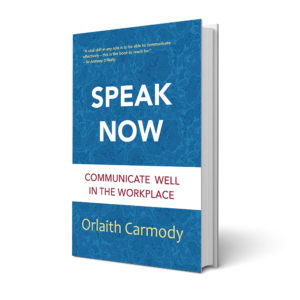There are lots of jobs out there – in your existing company, in a brand new one, or in the one you have targeted specifically as somewhere that seems like a good place to work. In this series, we look at the steps you can take to get the job that is perfect for you.
I was talking recently to a woman who has the ideal job in a company she loves. She described the process she had gone through a number of years previously to get the position, and it sounded very rigorous indeed. She told me that while she was going through several rounds of interviews, it felt very tough, but once she joined the company she understood why they did things that way. “It’s a small team, in a business that is growing fast, and it is so important that we all get on, and work well together, apart from having the right skills and qualifications”, she says. “The owners put a lot of time into choosing the right people, so that they settle well and really integrate.”
The company, which is in learning and development, and is regionally based, has about 40 jobs currently on its website, and appears to have a great pipeline of work in hand. It is one of those small business success stories we all love to hear about. And hats off to the owners who know that their success is all down to their people, and that the more time they invest in finding the right ones, the greater their success will be.
It is in great contrast to the ‘hire easy, fire easy’ approach of some concerns. If you pick up a job without breaking a sweat, the chances are you could be let go equally easily. So bear that in mind as you plan your strategy to land the perfect role.
Starting the Job Search
The obvious place to start looking is on jobs websites, right? Yes, I’m sure good roles have been found by starting there. But more often than not, people will report answering lots of advertisements and only getting a few acknowledgements. This is because advertisements on a jobs aggregator site are, of their nature, the widest possible trawl of the internet. They may get thousands of responses, so the only applicants who will get an answer are those who very, very specifically meet the exact requirements specified.
And this flies in the face of some of the received wisdom around job hunting which is to have a go, throw your hat in the ring, if you are not in, you can’t win. We know that someone may just take a chance on you, even if you don’t possess all the competencies specified, if you can reach them and impress them. I like to suggest to people I am coaching not to eliminate themselves before the prospective employer does.
You have to believe that even where you don’t have all the experience specified, you might have transferrable skills that would adapt well.
Human Resources Director Audrey Cahill told me recently about the very strong internal recruiter she had in her last company. “She would always present 3 or 4 candidates who had been scored 90% by the algorithm, and who were very good in a subsequent preliminary interview, but she would also add to the short list one person who was a wild card”, she says. “That person may have only scored 45% but very often they were the one who got the job. They had a curiosity or an enthusiasm that made us believe they would be a better long term fit.”
So let’s talk about reaching people, rather than just the search bots who are scanning the CVs on the jobs site.

From Speak Now, Communicate Well in the Workplace.
Order your copy here


Recent Comments